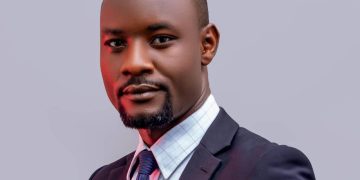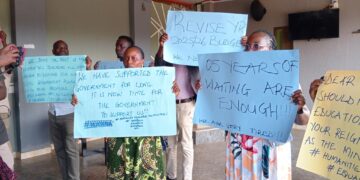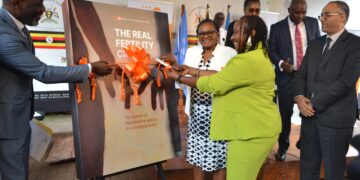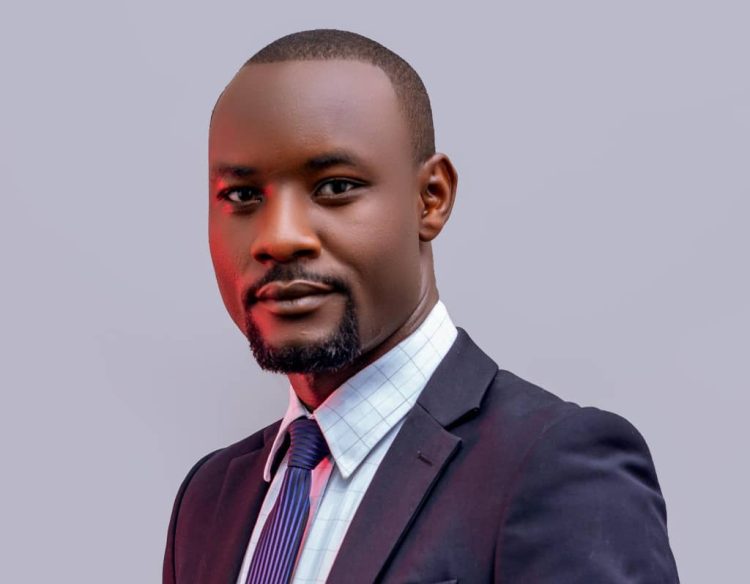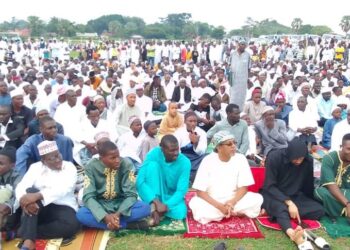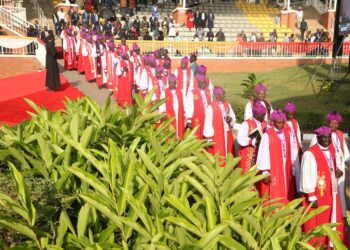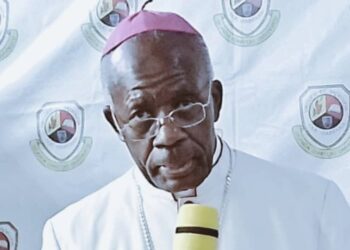OPINION
The recent 80th birthday celebration by President Museveni sparked widespread public debate, drawing attention from across the political spectrum. While some opposition members seized the occasion to call for his retirement, arguing that at 80 he is no longer fit to lead the country, supporters within the ruling National Resistance Movement (NRM) were quick to defend his continued leadership. They maintained that Museveni, as Commander in Chief, remains capable of steering Uganda forward in the years to come. This milestone birthday has reignited discussions about leadership, succession, and the future direction of the nation under his presidency.
In May this year, President Yoweri Museveni made a surprising statement. ‘I’m 80 years old and I am about to go to heaven,’ he said. “You are still young and you have more years ahead. You will be the ones to suffer if we don’t plan and make this country better for you to live in.”
These words of the fountain of honor also sparked a lot of discussion. Some people wondered if he was really ready to go to heaven, or if he was just trying to distract from his long time in power. Others asked why he did not step down as president to focus on his own preparations for the afterlife.
As I reflected on these discussions, my mind turned to my Islamic teachings. I remembered the beautiful teachings of Islam, which remind us that judgment belongs to God alone. As a Muslim, I knew it was not my place to determine who deserves a place in heaven or hell. Our understanding is limited to this earthly life, but God sees beyond the veil of time.
He alone knows the depths of our hearts and the true intentions of our actions. I realized that it is not for me to question the President’s eligibility for heaven, but rather to focus on my own journey and strive to live a life pleasing to God. As the Holy Prophet of Islam (PBUH) once said, “It is not one’s good deeds that will guarantee entry into paradise, but rather Allah’s grace and mercy.”
However, I could not shake off concerns about the future of our country. Will the next leaders learn from the mistakes of the current regime and steer Uganda towards a better tomorrow? The answer remained elusive, but one thing was certain, uncertainty is looming over Uganda’s horizon.

With the 2026 elections approaching, the National Resistance Movement (NRM) is widely expected to present President Museveni as its presidential candidate.
While no official declaration has been made, NRM spokesperson Emmanuel Dombo recently told The East African that the ruling party’s Central Executive Committee (CEC) had already passed a resolution in 2020 naming Museveni as the sole presidential flag bearer for 2021 and beyond. If President Museveni secures re-election for another term, he will have led Uganda for over 40 years.
Museveni’s nearly four decades of leadership have brought both achievements and challenges. On one hand, his government has been credited with stabilizing the nation, improving infrastructure, and promoting economic growth. Uganda has been a key player in East Africa, contributing to regional security and taking on leadership roles within the African Union and beyond. His commitment to creating a unified and stable Uganda has enabled progress in areas such as education, healthcare, and agricultural development.
However, critics argue that his extended rule has also stifled democratic processes, limited political pluralism, and fostered a culture of authoritarianism. The challenge of transitioning power has become a growing concern, particularly as Uganda’s young population looks for new ideas and representation. With over 75% of the population under the age of 30, the younger generation is increasingly questioning the sustainability of the status quo and seeking opportunities for a new political and economic order.
As we near the 40-year milestone of his leadership, it is important to reflect on the significance of this duration both in the context of global history and civilization, as well as for the future of Uganda.
The number 40 has a lot of symbolic meaning in both religious and political history. In the Bible, it often represents times of trial, reformation, and renewal. For instance, Noah endured 40 days and nights of rain during the Flood, which was followed by the promise of a new world. Moses’ life was also marked by cycles 40 years in Egypt, 40 years in the desert before being called to lead Israel out of bondage, and later spending 40 days on Mount Sinai receiving the Ten Commandments. The Israelites, too, spent 40 years wandering the desert, eating manna and preparing for their entry into the Promised Land. These trials symbolized a time of purification, preparing individuals or nations for significant change or new beginnings.
Beyond individual figures, the number 40 is also connected to leadership and repentance in the Bible. Many of Israelite key leaders, such as Kings David, Solomon, and Saul, as well as judges like Gideon and Deborah, led for 40 years, which symbolized a stable and prosperous leadership.
Even in times of challenges, like when Goliath taunted the Israelite army for 40 days before David faced him, or when Nineveh was given 40 days to repent under Jonah’s warning, which signified a critical time for decision and reformation.
Similarly, the number 40 holds considerable significance in Islam, representing various aspects of spiritual maturity, responsibility, and testing. The Holy Quran, while mentioning human birth states; And We have enjoined on man to be good to his parents. His mother bears him with pain, and brings him forth with pain. And the bearing of him and his weaning takes thirty months, till, when he attains his full maturity and reaches the age of forty years, he says, ‘My Lord, grant me the power that I may be grateful for Thy favour which Thou hast bestowed upon me and upon my parents, and that I may do such good works as may please Thee. And make my seed righteous for me. I do turn to Thee; and, truly, I am of those who submit to Thee (Chapter 46:16)
The Holy Quran states regarding Prophet Moses; “And We made Moses a promise of 30 nights and supplemented them with 10. Thus the period appointed by his Lord was completed – 40 nights.”
The Holy Prophet of Islam Muhammad (PBUH) was elevated to the station of prophethood at the age of 40.
It is also narrated in a tradition of the Holy Prophet of Islam that a human being stays in his mother’s womb for 40 days in the form of a sperm, for 40 days in the form of a clot and for 40 days in the form of a shapeless lump. Then, Allah the Exalted sends an angel to breathe the soul into him.
In the realm of politics, history has shown that 40 years is also a generational marker. Leadership that lasts this long often faces pressure to evolve and adapt to the demands of new generations. For example, China’s post-Mao era reforms, which began in the late 1970s, saw dramatic changes after roughly 40 years, with younger leaders implementing new visions of governance and economic policy.

Therefore as Uganda approaches its 40th year under Museveni’s leadership, the symbolism of this milestone should not be overlooked. Forty years often represents the culmination of one era and the dawn of another. For Uganda, this moment is an opportunity for the youth, the largest segment of its population, to prepare to take on the mantle of leadership.
As the world changes, so too must Uganda’s approach to governance, economics, and geopolitics. The next generation of Ugandan leaders must be prepared intellectually, morally and spiritually to engage with global powers, navigate international trade dynamics, and address emerging issues like climate change, technological innovation, and regional security.
Young Ugandans must recognize that they will not just be inheritors of President Museveni’s legacy, but also the architects of the future of Uganda. Therefore they must seek to acquire the necessary skills, education, and political knowledge to guide Uganda in the next 40 years.
The next 40 years will demand leaders who can balance tradition with innovation, leaders who do not understand rich history of Uganda but are also prepared to build on it in new and progressive ways.
By Nakhokho Rashid Matselele,
Freelancer Journalist at UBC TV, Missionary of Ahmadiyya Muslim Association, Uganda and a Student of Masters in Communication and Media Studies at Islamic University in Uganda.
